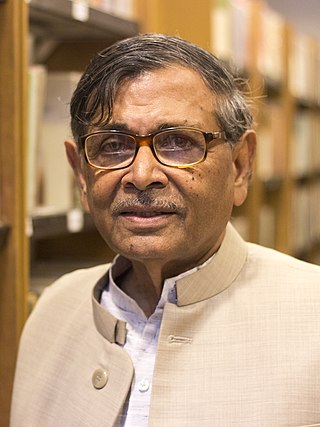
Abdullah Abu Sayeed is a Bangladeshi educator, writer, television presenter, and activist. He is the founder and chairman of Bishwa Sahitya Kendra, a non-profit organization that promotes the study of literature, reading habits and progressive ideas.

Rehman Sobhan is a Bangladeshi economist. Regarded as one of the country's top public thinkers, he is the founder of the Centre for Policy Dialogue. Sobhan is an icon of the Bangladeshi independence movement due to his role as a spokesman of the Provisional Government of Bangladesh in the United States during the Bangladesh Liberation War. He was awarded the Independence Day Award, Bangladesh's highest civilian honour, in 2008.
Akhter Hameed Khan was a Pakistani development practitioner and social scientist. He promoted participatory rural development in Pakistan and other developing countries, and widely advocated community participation in development. His particular contribution was the establishment of a comprehensive project for rural development, the Comilla Model (1959). It earned him the Ramon Magsaysay Award from the Philippines and an honorary Doctorate of law from Michigan State University.
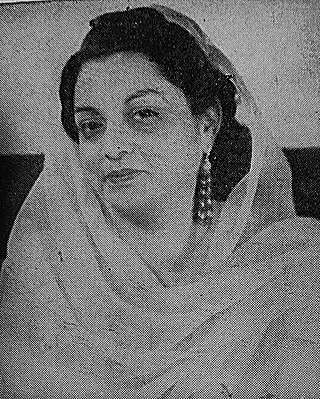
The All Pakistan Women's Association, or APWA, as it is commonly known, is a voluntary, non-profit and non-political Pakistani organisation whose fundamental aim is the promotion of moral, social and economic welfare of the women of Pakistan.

Shahbagh is a major neighbourhood and a police precinct or thana in Dhaka, the capital and largest city of Bangladesh. It is also a major public transport hub. It is a junction between two contrasting sections of the city—Old Dhaka and New Dhaka—which lie, respectively, to its south and north. Developed in the 17th century during Mughal rule in Bengal, when Old Dhaka was the provincial capital and a centre of the flourishing muslin industry, it came to neglect and decay in early 19th century. In the mid-19th century, the Shahbagh area was developed as New Dhaka became a provincial centre of the British Raj, ending a century of decline brought on by the passing of Mughal rule.
Bangladesh Academy for Rural Development (BARD) (Bengali: বাংলাদেশ পল্লী উন্নয়ন একাডেমী started its journey on 27 May 1959 as a Training, Research and Action Research institute in rural development. The founder director of this academy dedicated to the leadership of Dr. Akhtar Hameed Khan, some researchers carried out continuous experiments with rural people and developed some model programs for rural development in this country. In the early sixties, the problems that were prevalent in rural areas were identified. The priorities of these programs are:
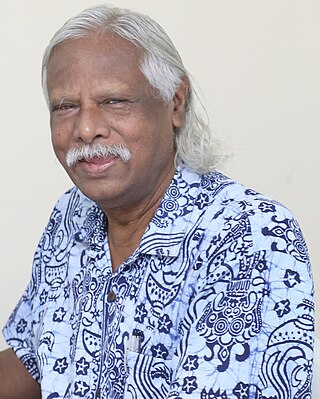
Zafrullah Chowdhury was a Bangladeshi public health activist.

Comilla Victoria Government College, mostly known as Comilla Victoria College, is a government college in Comilla, Bangladesh. It is one of the oldest and most renowned colleges in Comilla as well as in the Chittagong division. The degree and honours branch of the college is located in Dharmapur area of Cumilla district. The college was named after Queen Victoria, once the Queen of British Raj.
1980 (MCMLXXX) was a leap year starting on Tuesday of the Gregorian calendar, the 1980th year of the Common Era (CE) and Anno Domini (AD) designations, the 980th year of the 2nd millennium, the 80th year of the 20th century, and the 1st year of the 1980s decade.
1978 (MCMLXXVIII) was a common year starting on Sunday of the Gregorian calendar, the 1978th year of the Common Era (CE) and Anno Domini (AD) designations, the 978th year of the 2nd millennium, the 78th year of the 20th century, and the 9th year of the 1970s decade.

Syeda Rizwana Hasan is a Bangladeshi lawyer and environmentalist. She is currently an adviser to the interim government of Bangladesh and as Minister of Environment, Forest and Climate Change. As an environmentalist, her work is focused on regulations for the shipbreaking industry in Bangladesh, and was awarded the Goldman Environmental Prize in 2009. She was also awarded the Ramon Magsaysay Award in 2012 for her "uncompromising courage and impassioned leadership in a campaign of judicial activism in Bangladesh that affirms the people's right to a good environment as nothing less than their right to dignity and life."
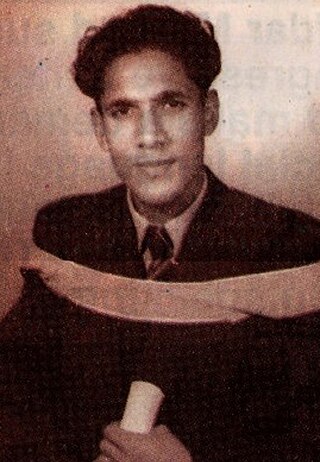
Shoaib Sultan Khan NI is one of the pioneers of rural development programmes in Pakistan. As a CSP Officer, he worked with the Government of Pakistan for 25 years, later on he served Geneva based Aga Khan Foundation for 12 years, then UNICEF and UNDP for 14 years. Since his retirement, he has been involved with the Rural Support Programmes (RSPs) of Pakistan full-time, on voluntary basis. Today, the Rural Support Programmes have helped form 297,000 community organisations in 110 districts including two Federally Administered Tribal Areas of Pakistan.
Institute of Social Welfare and Research is one of the oldest institutes of the University of Dhaka. It is the apex institution for the social work education in Bangladesh. It offers Graduation, Post-Graduation, M.Phil. and PhD degrees to students in social welfare/social work.

Rajnikant Shankarrao Arole was born in Supa in the Ahmednagar district of Maharashtra, India on 10 July 1934, the second child of Shankar and Leelawati Salve Arole. His parents were both schoolteachers and his father became Inspector of Schools. The Aroles raised their three sons and four daughters in the faith of the Church of England, inculcating in them Christian ethical and spiritual values that have guided Rajnikant through a lifetime of public service.
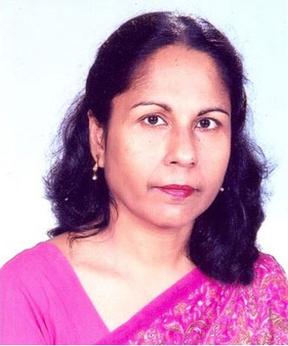
Khaleda Ekram was a Bangladeshi architect, professor, researcher, and academic. She served as the 12th vice-chancellor of Bangladesh University of Engineering and Technology (BUET). She was the former dean of the faculty of architecture and planning and head of the department of architecture at BUET. She was the first woman to be appointed as the vice-chancellor of BUET. She held the position from September 2014 until her death in May 2016.
The Bangladesh Rural Development Board, or BRDB, is a government agency responsible for the development in rural areas and is the largest government program involved in rural development in Bangladesh and is located in Dhaka, Bangladesh. The core of the BRDB efforts is the design and implementation of a series of integrated rural development (RD) projects and a Rural Poor Cooperative Project (RPCP). The landless men and women, marginal and small farmers constitute the target population of these projects. In addition to facilitating agricultural co-operative programs, BRDB mobilizes the rural poor, marginal farmers, and women into cooperatives and informal groups, which allow them to engage in income generating activities, and improve standards of living.

The Government agencies in Bangladesh are state controlled organizations that act independently to carry out the policies of the Government of Bangladesh. The Government Ministries are relatively small and merely policy-making organizations, allowed to control agencies by policy decisions. Some of the work of the government is carried out through state enterprises or limited companies.

The 1980s was a decade of the Gregorian calendar that began on January 1, 1980, and ended on December 31, 1989. For Bangladesh this decade was characterized by economic hardship, natural disasters and military dictatorship. Hussain Muhammad Ershad ruled Bangladesh almost throughout the decade. Infrastructure development was slow but there was notable progress in local government administration, population control and NGO led microfinance activities which boosted the rural economy. The urge of freedom of speech and return to democracy influenced the cultural activities in the decade.

Shāh Nūrī Bengālī was an 18th-century Bengali Islamic scholar and author from Dhaka. He is best known for his magnum opus, Kibrīt-e-Aḥmar, which was written in the Persian language.

Abū Naṣr Muḥammad Waḥīd, or simply Abu Nasr Waheed, was a Bengali Islamic scholar, educationist, author and politician. He is best known for his reformations to Islamic education in Bengal, and development of Arabic language education among Bengali Muslims. Wahid also served as the Education Minister of British Assam and a member of the Assam Legislative Assembly.













